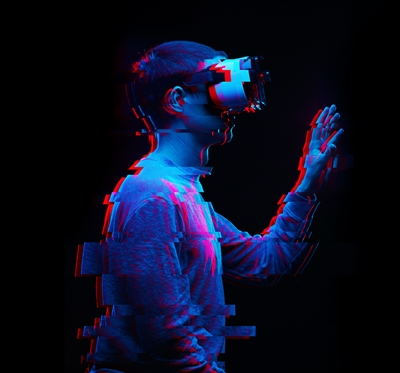What will teaching and learning be like in the future?

Trying to ascertain just how much you learnt in a year is a difficult problem. Knowledge does not easily categorise itself, for it is rather a blend of different comprehensions. Physics, chemistry, geography and mathematics, while seemingly discrete domains, have many domains of overlap. In many ways it would be true to say that you learnt nothing in 2021 that did not draw heavily upon knowledge acquired in previous years.
If you look back over the previous year, during which periods would you say that you learnt the most? Was it maybe when you were cramming for an upcoming exam, staying up all hours, sustained on cold coffee and grim determination? Or was it during certain classes, or lessons with a personal tutor?
Learning itself is something that is difficult (or maybe impossible) to measure. Certainly there are moments where you have a flash of understanding - when the solution to a particular problem suddenly presents itself. These `Eureka` moments are relatively rare though, and learning itself seems more akin to building with small bricks, new pieces information being lain down upon previous structures of understanding.
This style, or `mode` of learning is in many ways a product of the classroom. A teacher orates to a group of students, gradually building their level of understanding through examples and theory. Classrooms have been around for many centuries, going back at lest to the time of the ancient Greeks, but certainly further than that - probably first coming into existance during the Neolithic Period, when humans abandoned their nomadic existance, and began to establish permanent settlements.
Though this style of teaching has been employed for perhaps 10,000 years, theres no reason to think that it will continue forever. Indeed the rising incidence of online learning over the last few years may be just the beginning of a whole new manner of disseminating knowledge and skills.
The internet has already made changes to the way we learn - most obviously by allowing anyone with a smartphone or computer to access more information than was contained in the Library of Alexandria! The very wealth of online learning content is just astounding, ranging from individual youtubers creating their own teaching material, to venerable universities (such as Oxford, Cambridge, Princeton, and Harvard) uploading recordings of their lectures for anyone to consult.
This versatile connectivity to other teachers and students permits lessons to take place at any time, and in any location. No longer are students required to be in class to learn, and the benefits of this have been only too apparent during the corona virus pandemic, where schools and universities across the world have been closed for extended periods.
Online resources and lessons are really just the nascent signs of what will surely be an education revolution. Artificial Intelligence, along with Virtual Reality, are going to transform our lives over the next few decades, and how we learn is very likely going to be radically transformed. VR is really becoming readily accessible now, and the possibilities it offers for education can hardly be overstated.
Imagine being able to walk around the lost city of Troy, or spend a day in Ancient Rome, the experience so lifelike that your eyes and ears cannot discern the artificiality of the reality you are inhabiting. Haptic technology will provide a convincing solidity to any objects in the simulation, this kinaesthetic communication possessing vast applications, with everything from sculpture to surgery being within its teaching capacity.
An even more futuristic scenario could see the activity of `teaching` come ever closer to the concept of `neural manipulation.` Though many aspects of learning are not understood, what is known is that learning a new skill is the result of a strengthened connection between neurones in the brain. A child possesses a learning capacity that far exceeds that of any adult, because of something called neural plasticity. Their brains are in a way more malleable than those of adults, as most of their synaptic connections are not yet fixed. It is for this reason that children learn languages with such greater ease than adults. Simply by overhearing their parents speak they somehow pick up all the rules of grammar, while expanding their lexicon by as many as five new words a day by the age of two.
If this level neural plasticity could somehow be brought back for adults, and combined with an intensive teaching programme well one can only imagine what the results might be! Though this may sound like science fiction, we should consider how many things we take for granted today would seem as sorcery to someone living a hundred years ago.

 Add a Comment
Add a Comment